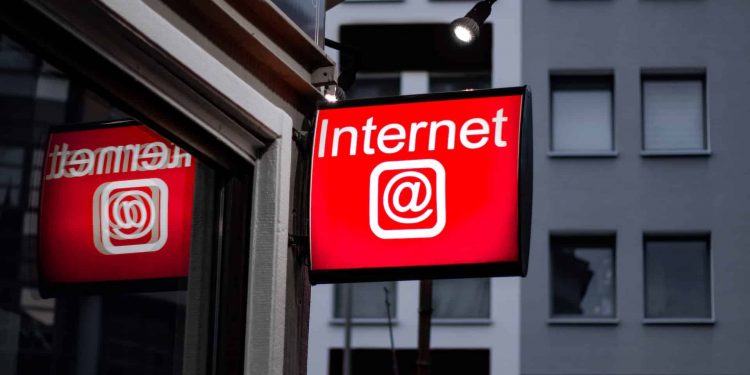Nigeria’s internet landscape experienced a significant transformation between December 2023 and December 2024, as the number of active internet users dropped from 163.8 million to 139.2 million, according to data from the Nigerian Communications Commission (NCC). The decline was primarily driven by the deactivation of SIM cards not linked to verifiable National Identity Numbers (NINs) and the correction of discrepancies by a mobile network operator, marking one of the most drastic shifts in recent years.
The telecom sector also recorded a sharp fall in active telephone connections, which plunged from 224.7 million to 164.9 million, reflecting a 26.6% decrease. As a result, teledensity, which measures the number of active telephone lines per 100 people, fell from 103% to 76.1%, indicating a major contraction in telecom penetration across the country.
Despite the drop in subscribers, mobile data consumption surged, rising from 713,200 terabytes to 973,445 terabytes within the year. This suggests that while fewer people are using mobile networks, those who remain are consuming more data—likely due to faster internet speeds, increased video streaming, remote work, and a growing digital economy.
Market share data showed that MTN continued to dominate the industry, maintaining 51.39% of the market with 84.6 million subscribers as of December 2024. Airtel followed with 56.6 million users (34.3%), while Globacom and 9mobile accounted for 12.2% and 1.9%, respectively.
The way Nigerians access the internet also changed significantly, as 4G overtook 2G in penetration for the first time, reaching 42.7% of total internet users. 2G made up 41.5%, while 3G stood at 9% and 5G remained the least adopted at 2.3%. Though still in its early stages, 5G adoption grew steadily throughout the year, signaling a gradual shift toward next-generation connectivity.
At the end of 2024, broadband penetration reached 44.43%, with 96.3 million Nigerians having access, up from 94.7 million the previous year. However, the NCC remains 25.5% short of its 70% broadband penetration target, set for the end of 2025. Given the current average monthly growth rate of 2%, meeting this goal within the timeline appears unlikely. However, the planned 90,000 km expansion of Nigeria’s broadband network could accelerate progress, increasing connectivity and digital access across the country.
The latest figures highlight an industry undergoing major shifts, with regulatory changes altering the market and internet usage patterns evolving. While the removal of unregistered SIMs has reduced overall user numbers, the rise in broadband access and data consumption reflects a growing demand for faster and more reliable internet. As Nigeria advances its digital transformation agenda, the focus will be on expanding broadband infrastructure, improving network quality, and driving 5G adoption to support economic growth and technological innovation.










